- Latest articles
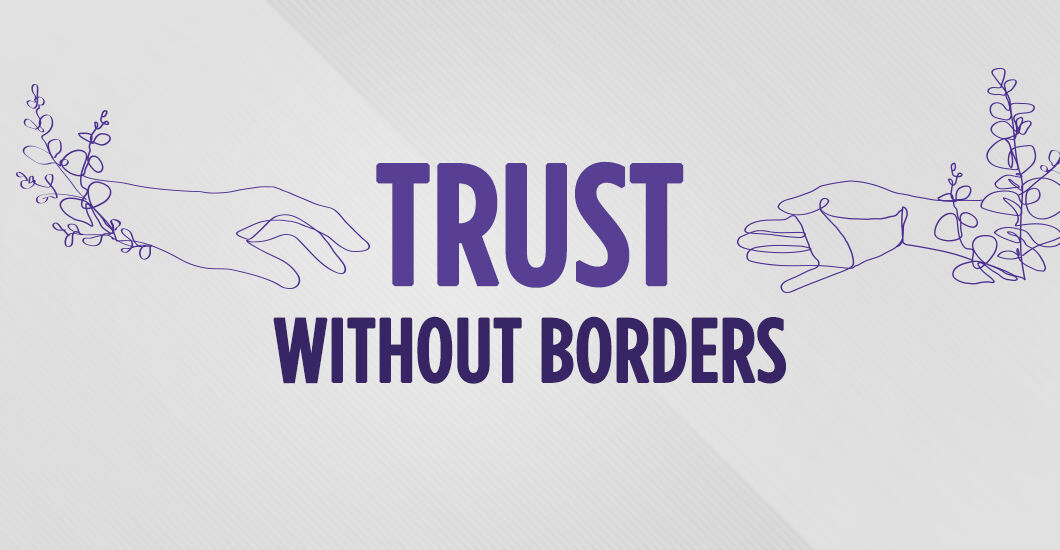
Does my trust in God rely heavily on my bank account, property and resources? Or do I really put my trust in God without borders?
A missionary family came to stay with us at the Lord’s Ranch for a time of rest after returning from a mission post in a third-world country. At lunch, one day they shared a wonderful story about the Lord providing. They were living in a very poor neighborhood and people often came to them asking for help. The missionary family received a monthly stipend for their living expenses, and usually by the end of each month finances would be tight. They did not have a refrigerator in the house or even any cupboards, so whatever food they needed for that day they would buy at the market and that’s what they would eat.
One month as they were looking at the budget, they saw that they were down to the bare minimum—hardly enough to eke out some simple meals until the next stipend arrived. And then they heard a knock at the door. A knock at the door usually meant that someone in need was coming to ask for something. The parents told the kids, “Don’t open the door. We don’t have anything to spare.” Mom and Dad knew they hardly had enough to feed their own family. But the kids, horrified, told their parents, “Where’s your faith?!” One of the kids said, “If you trust in yourself, you leave no room for God to do marvels.”
Chagrined and corrected by the response of their children, the parents opened the door. Indeed, it was someone asking for help, and the kids gave away everything they had on hand to a family needier than themselves. “Alright, here we are,” the dad said after he closed the door. “We’re going to be very hungry this week.”
Relating the story to us, he then said, “Oh me of little faith! You should have seen the provision that came flowing in that week! Somebody brought us some rice, another person brought a wheelbarrow full of coconuts, somebody else brought by sugar cane. We also got invited out to eat that week. We were shown yet again the truth of God’s Word, ‘Give and it shall be given to you.’”
He was quoting Luke 6:38 when Jesus tells His disciples, “Give, and it will be given to you. A good measure, pressed down, shaken together, running over, will be put into your lap; for the measure you give will be the measure you get back.”
When I reflected later on this wonderful testimony, I asked myself, “Where is my trust? Is it in my resources, my bank account, my property? Or is it in God?” I thought of what one of the missionary kids had said, “If you trust in yourself, you leave no room for God to do marvels.” Do I leave any room in my life for God to do marvels? Is my trust without borders?
As we approach the season of Lent, the Church invites us to an increased practice of prayer, fasting and almsgiving. Almsgiving, especially when we give sacrificially and not just out of our surplus, can stretch our hearts and rid us of some of our selfishness. Let us put our trust in God without borders. It can also help us make room in our lives for God to surprise us with His marvelous and bountiful care and provision.
This Lent, let’s prayerfully ask the Lord how we can be more generous with the gifts that He has blessed us with, be it our time, our energy, our smiles—but especially our pocketbooks. As you follow those prayerful nudges to give alms, don’t be surprised when God fulfills His promise in Luke 6:38 of topping whatever we give with “good measure, pressed down, shaken together, running over…” As my dad often said to us, “You can never outdo the Lord in generosity!”
'
Be amazed at what love can do for you!
I have always found great inspiration from reading the lives of the Saints, our friends in Heaven. Recently, I read about the life and teachings of Saint Elizabeth of the Blessed Trinity, a twentieth century Carmelite nun from Dijon in France. At her beatification in 1984, Saint John Paul II said Saint Elizabeth was “a shining witness to the joy of being rooted and founded in love”, (Ephesians 3:17) and that she was “always assured of being loved and being able to love”. She believed her mission in Heaven would be to help people seek a deeper loving union with the Blessed Trinity and inspire us to believe in the love God has for each of us.
The Broken Half
The corona virus pandemic lockdown gave me more time to read about Saint Elizabeth’s life, which in turn has enabled me to reflect on my faith journey, my relationship with God, and my prayer life. Attending a Shalom World online retreat inspired me to rise early and spend time with God, listening to Him speak to me through Sacred Scripture. After an honest look at myself and my faith journey, it became apparent to me that I was holding back from God; what I kept hidden, was what was broken and needed healing. I found warmth and inspiration in the words of Saint Elizabeth “Let yourself be loved”. I needed to start believing in God’s love for me and enter into a deeper, and more meaningful union with the Blessed Trinity.
I remember attending my first Novena at Clonard Monastery—the novena to Our Lady of Perpetual Succour as a teenager. I was not a great student and my grades reflected this, but the year I attended the novena I asked Our Lady to pray that my grades improve. Weeks later, I brought home a glowing report card full of A’s and B’s and was given a prize for success in studies. This experience persuaded me that God the Father hears and answers prayers and that Our Blessed Mother and the Saints are great intercessors.
As I grew older, I attended Mass on Sundays and occasionally said my prayers, but I was drawn to a worldly life and was more curious about what the world had to offer than staying faithful to God. But my choices did not bring me happiness; I was lost and experienced an emptiness I remember to this day. Not until my thirties did I realize I needed God’s help. I had been searching for happiness in all the wrong places. I had nowhere to turn but to my ever-faithful God. This time it was different and I had asked for help: I felt God was telling me He would help me, but I had to change my ways, turn from sin and follow Him.
Treasures of My Faith
Though I thought I had fully surrendered to God by this time, I was still holding back. God was patient and gave me the strength to abandon my old way of life. I began to spend more time in Eucharistic Adoration. I could feel the presence of Our Lord and His love for me. God revealed my sins to me in a loving and gentle way. I felt as if I had been cured from blindness and that finally I could see how I had offended God and I was truly sorry for all my sins. But I learned it takes time to fully abandon myself to His loving will.
God sent special people into my life to accompany and support me on my journey. My parish priests brought an amazing blessing into my life by sending me on a home-study catechesis course at the Maryvale Institute Birmingham. I was able to organize adult Catholic formation courses in my parish and found this opportunity to pass on the treasures of our Catholic faith to be yet another great blessing. During this time of transformation, there was no lack of trials, struggles and discouragements, but I knew God was with me and that I could always rely on Him and Our Blessed Mother for help and consolation.
I can see how Jesus has looked after me, guided and loved me and given me an abundance of blessings in my life, more than I deserve. As I continue my spiritual journey I know I must put my relationship with God above all things and dedicate time to Him in prayer each morning. The more I do this, the more I experience God’s love. I trust God and thank Him for the spiritual insights of Saint Elizabeth—a message meant for me, for you and for each of us: “Let yourself be loved.”
'
Looking forward to a transforming experience this Lent? Here are 5 steps to stick to your Lenten resolutions!
“Why are Lenten penances like New Year’s resolutions?” joked a friend as we gathered on New Year’s Eve. In a very Australian way we had celebrated with barbecued meats and salad, and a swim in the pool. Now, as we relaxed after dinner, and kept the mosquitoes at bay, our conversation had turned to more philosophical topics.
The answer to her question was this: “You never share them with others unless you want to get caught out!” Certainly, this was a very specifically Catholic joke, but as the old adage goes there is many a true word spoken in jest.
Lent can be a tricky time for us sinners. Like our New Year’s resolutions, we might start out with the best of intentions with regard to our Lenten observances but we often let things slide, or give up altogether.
But Lent is not over yet, and there is still time to recover our Lenten efforts, no matter how dismal they may have been thus far!
-
Be Imperfect
Whilst my friend’s joke was humorous, being “caught out” is not something that we need to be afraid of. God does not mark us on our failures, judging them as we do, marking us deficient and asking us to resubmit. God’s mercy is infinite.
The truth is that there are always a few falls on the road to Calvary—do we not meditate on those of Our Lord in the Stations of the Cross? Sure, His were not falls in the same way as ours, but the sentiment is the same.
God is not expecting our Lenten observances to be offered perfectly. He is using these penances to help us grow in holiness, humility and acceptance of His will for us. He knows that we are not perfect, so He is trying to help us become more perfect, more like Him.
-
Be Accountable
Once we’ve accepted our sinful nature and it’s propensity to imperfection, a useful tool to getting the most out of Lent is to hold ourselves accountable. One of the simplest ways to undertake this is to evaluate our progress at the end of each day through a nightly examen.
A nightly examen is where we put ourselves prayerfully into God’s presence and examine our conscience. We might ask ourselves questions like: Did I keep my Lenten observance today? Did I observe it with a joyful disposition or as an obligation?
Some days the answers to those questions may be less than ideal but that’s where the next step comes in.
-
Be humble
After we have examined our conscience, and our Lenten efforts, we can ask forgiveness from God for our failures to live up to our expectations and resolve, with God’s help, to try again tomorrow.
The important thing to remember here is this: ‘with God’s help’. We aren’t required to puff through Lent on our own steam. Growing in holiness and obedience to God’s will means actually discerning what He wants for us and allowing Him to help us.
Recognizing and accepting that we need His help is often the hardest concept to get our head around. We like to be in control but, if we are serious about sanctity, we need to accept that we’re not in control and trust in God’s plan for us.
-
Be discreet
In Matthew’s Gospel, Jesus speaks specifically about the attitude and approach that we should have to fasting and penance: “And whenever you fast, do not look dismal, like the hypocrites, for they disfigure their faces so as to show others that they are fasting. Truly I tell you, they have received their reward. But when you fast, put oil on your head and wash your face, so that your fasting may be seen not by others but by your Father, and your Father who sees in secret will reward you.” (Matthew 6: 16-18)
The hidden sacrifices are those that often cost us the most—and additionally—bear the most spiritual fruit. If only God can see how much it costs you to drink your coffee without sugar, or refrain from adding salt to your meals, or get up 15 minutes earlier in order to spend more time in prayer, then that is a spiritual win.
Complaining or commiserating with others about how hard our Lent has been undoes much of the good that our sacrifices and penances achieve.
-
Be transformed
In his letter to the Romans, Saint Paul exhorted them, and consequently us, not to conform to this world. His words are the perfect expression of what Lent can be for you, if you approach it resolutely, and endeavor to grow closer to God:
“I appeal to you therefore, brothers and sisters, by the mercies of God, to present your bodies as a living sacrifice, holy and acceptable to God, which is your spiritual worship. Do not be conformed to this world, but be transformed by the renewing of your minds, so that you may discern what is the will of God —what is good and acceptable and perfect.” (Romans 12: 1-2)
'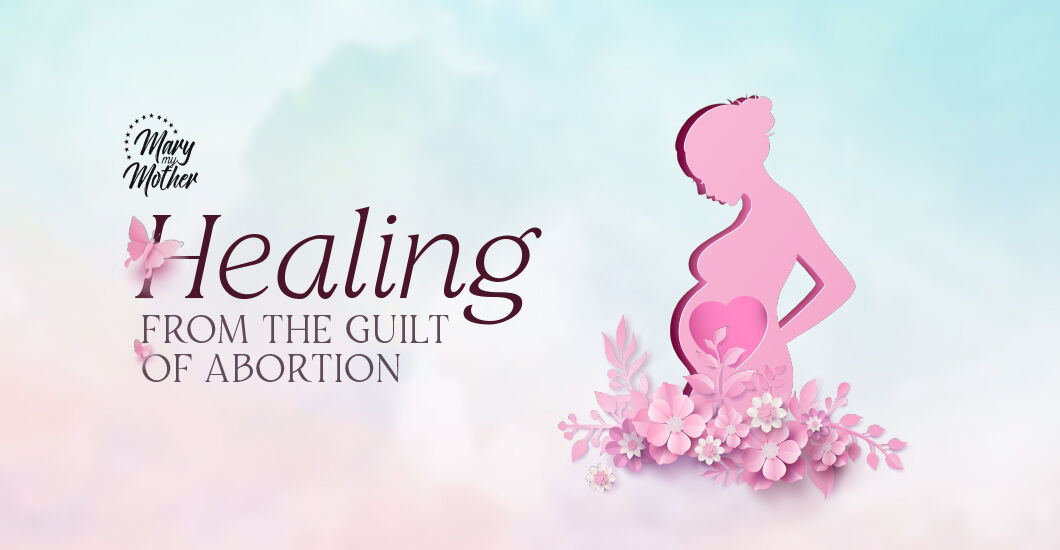
Now that I was married, I thought I could move ahead as if none of the past things happened and the pain would disappear; but instead I began to struggle with depression and anger…
I was born as the ninth child in a big Irish Catholic family. My mom was truly devout Catholic but my father’s addiction to drinking caused a lot of problems which set me up to be vulnerable. When I was fourteen, I was raped, but when I disclosed it, someone told me, “You should not have let that happen. Now you are a whore”. So, even though it wasn’t true, I believed that about myself. Because I didn’t want to be a whore, I got a boyfriend. Because I’d picked up a false sense of morality from the culture around me, I thought it was okay to have sex as long as I was in a “relationship”.
By the time I was sixteen, we were pregnant. He pressured me to have an abortion so we could finish high school. I was sick, confused, scared but saw it as a problem that needed to be solved. When he took me to an abortion clinic, I was shaking so badly that the nurse gave me valium to calm me down. Then she said, “Don’t worry about it, honey. It’s not a baby. It’s just a clump of cells.” I went completely numb, but the laughter of the abortionist as he exclaimed, “That’s the way I like to get them,” still haunts me. I still feel the tears rolling down my face, saturating the paper sheet I was lying on.
My first day back at school is embedded in my memory. I was standing in the hallway when a kid came up to me, looked at me with concern and said, “Eileen what’s wrong?” Immediately this wave of denial came over me and I quickly answered, “Nothing, Why?”
“I don’t know, you look different”.
I was Different!
My life spiraled downwards. I began to drink and use drugs to keep myself numb and to stay in the same “relationship”. By the time I was eighteen, we were pregnant again and had another abortion. I was so traumatized by the experience that I remember nothing about it—even the location. But my sister and boyfriend remember. I couldn’t deal with that much pain.
We broke up, but I started another “relationship”. If I were to describe my soul then, I would have to say it was in total moral decay, like the culture I had allowed myself to be sucked into.
When I was twenty-three, I was shocked out of my torpor by the worst event of my life. Mom was killed in a car accident by a drunk driver. At her funeral, I was transfixed by the incense rising above the casket. It’s a symbol of our prayer rising up to God, but I saw it as Mom’s soul going to be with God. Mom was a faithful woman, so I was sure she would end up in Heaven. I longed to see her again someday, so I wanted to go there too, but my life would have to change. I hit my knees then and cried out to the Lord. I began to go back to church, but a month after Mom died, I found out I was pregnant. I had this overwhelming sense that Mom knew everything now that she was with God.
Unforgotten Pain
I got a job to support my daughter, had her baptized and gave her the love and care I was longing for. The Lord brought a good man into my life, so I prepared for our wedding by making a good Confession of all my sins, including the abortions. When the priest absolved me and told me that “Jesus loves you”, I wasn’t convinced because I felt that I had committed the most unforgivable sin. I was in denial about how much pain I still carried, even though I thought about it every day.
I had this idea that everything would be good now that I was married and we could have the good life together that I had always wanted. I thought I could move forward as if none of the past had ever happened and all the pain would just disappear.
Instead, I began to struggle with depression and anger. I was really struggling with intimacy with people. I felt unable to be myself and be real with them, so I had difficulty making and maintaining friendships. I had a fragmented sense about myself and although I still thought about the babies I had aborted every day, I never talked about them to anyone.
But the Lord hadn’t forgotten me. I made a new friend, Grace who introduced me to Sister Helen, a nun who had the gift of healing.
When she prayed over me, she told me something about myself that she could never have known. That terrified me. Abortion affects women on a lot of different levels and one of its impacts on me was a fear of Jesus. In church I was okay because I imagined Him as somewhere far off in Heaven. This time she said, “Eileen I don’t know what it is, but there is something that Jesus wants you to tell me.” I broke down in tears while I told her about the abortions. “Okay I understand”, she murmured gently. “First I want you to pray about this. Ask Jesus what your children’s names are.”As I prayed, I felt the Lord tell me that I had a little girl named Autumn and a little boy named Kenneth. They were going to be a part of me for all eternity. So, I needed to stop denying them and embrace them. It gave me the permission that I needed to grieve—a pillow soaking, gut wrenching grief.
Cuddled in Her Arms
One day, my husband came home from work early to find me lying in a fetal position on the basement floor engulfed in tears, because I had finally admitted to myself that I had participated in taking the lives of my own children. My husband gently picked me up off the floor and asked, “Honey, What’s wrong?” I was given the grace to finally tell my husband about the abortions. He held me close, whispering, “It’s going to be okay, I still love you”.
When I returned to Sister Helen for more healing prayer, in my mind’s eye, I saw myself sitting on Jesus’ lap with my head pressed to His chest. Then I saw the blessed Mother cuddling my babies in her arms. She brought them to me and I held them close as I told them how much I loved them and how sorry I was. I begged for their forgiveness before I entrusted them back into the Blessed Mother’s loving arms. She promised me they would be with her and Jesus in Heaven for all eternity. Then as Jesus and Mary embraced me again, I heard Jesus say, “I STILL LOVE YOU.”
I had been inspired by people who bore witness to God’s loving mercy, so now I felt called to do the same by telling my story, helping with the Rachel’s Vineyard retreats for women seeking healing from the effects of abortion and becoming a therapist.
Restored to Life
When people ask me, “As a therapist, how do you hold all this trauma when you hear all these people’s stories?” and I tell them that I don’t do it alone. Mary does it with me. I am consecrated to her, so everything I do is for Jesus through Mary. Daily Rosary and daily reception of Our Lord at Mass give me the strength I need. It is there that I meet my children every day because all of Heaven comes down to surround the altar at every Mass.
After more than thirty years, I contacted the father of my aborted children to tell him about my healing and offer that hope to him. He thanked me because it gave him insight into why his life felt so directionless and gave him hope that it could be different. His voice broke as he told me, “Those were the only two kids I ever had.”
ARTICLE is based on the testimony shared by Eileen Craig for the Shalom World program “Mary My Mother”. Eileen is a wife, mother and a licensed counselor. Married for over 34 years, she and her husband live in Michigan and they have three adult children. To watch the episode visit: shalomworld.org/mary-my-mother
'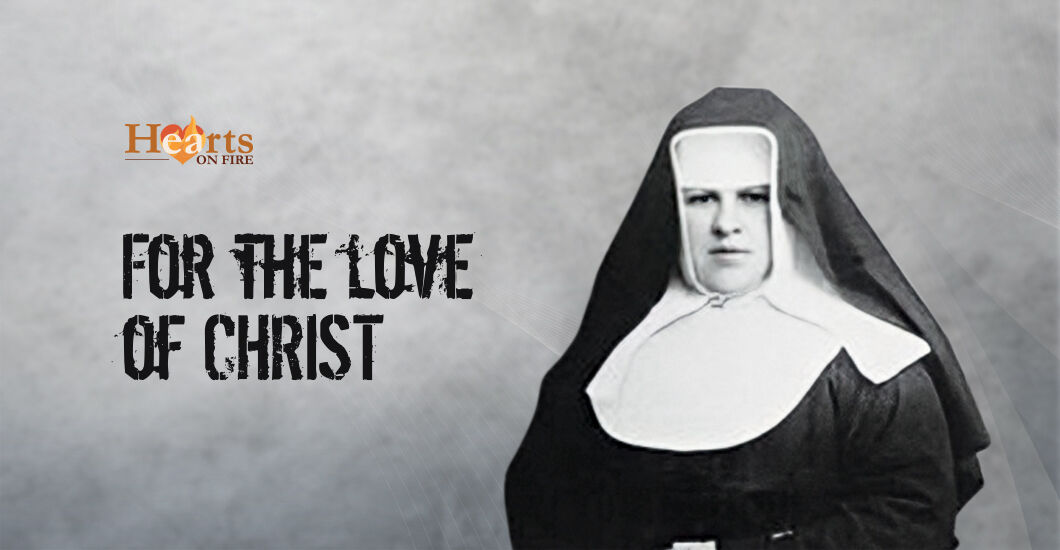
We know the Nazis’ wickedness cowed many into silence, but not Blessed Maria Restituta.
Born Helen Kafka, in a family of Czech extraction, she grew up in Vienna. After leaving school at 15, Helen tried her hand at various jobs before settling on a nursing career with the Franciscan Sisters of Christian Charity.
After several months, Helen asked her parents’ permission to join the order. When they refused, she ran away from home. Ultimately, her parents relented, and so the congregation accepted her. Helen took the name Restituta after an early Christian martyr, and made her final vows in 1918 at age 23.
The top surgeon in the hospital where she worked was difficult. Nobody wanted to work with him…except Sister Restituta, and within a short time, she was running his operating room. Eventually, she became a world-class surgical nurse. Sister was tough and people called her “Sister Resolute”. Her vocal opposition to the Nazis proved she was also brave.
After Sister Restituta hung a crucifix in every room of her hospital’s new wing, the Nazis ordered them to be taken down. She refused. The crucifixes stayed. But when the Gestapo found anti-Nazi propaganda on her, she was arrested on Ash Wednesday of 1942, and was imprisoned for more than a year. She gave her rations to other prisoners who were starving; it is said that she saved the life of a pregnant woman and her baby.
On March 30, 1943 she approached the guillotine wearing a paper shirt, weighing just half her previous weight, and her last words were, “I have lived for Christ; I want to die for Christ.” Sister Restituta was the only “German” religious living in “Greater Germany” martyred during the Second World War.
Fearing that Catholic Christians would promote her as a martyr, the Nazis threw her body into a mass grave. In the Basilica of St. Bartholomew on the Tiber in Rome is a chapel dedicated to 20th century martyrs. The crucifix that hung from Blessed Restituta’s belt is kept there as a relic.
'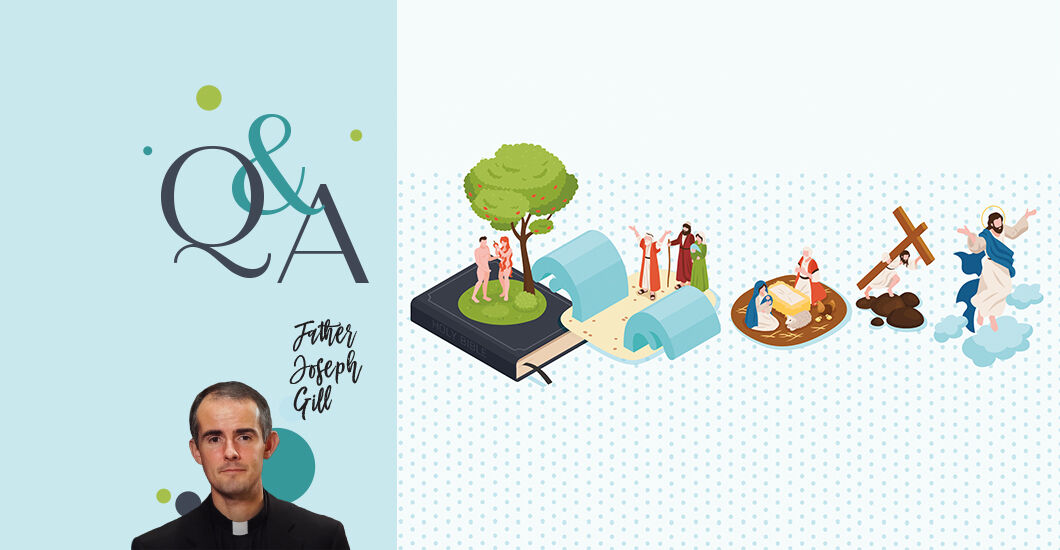
Question: I want to start reading the Bible, but I don’t know where to start. Do I read it straight through, like a novel? Should I just open to a random page and start reading? What do you recommend?
Answer: The Bible is such a powerful place to encounter Jesus! As Saint Jerome said, “Ignorance of Scripture is ignorance of Christ.” So, you are to be commended for wanting to make it part of your spiritual life!
At first glance, the Bible can seem unwieldy, full of disjointed stories, long genealogies, laws and prophesies, poetry and songs, etc. I recommend two ways of reading the Bible. First, don’t read the Bible from beginning to end, because some books are tough to plow through! Instead, use Dr. Jeff Cavins “The Great Adventure Bible Timeline” to read your way through the overarching story of Salvation History—the story of how God worked throughout human history, starting with Creation, to save us from our sins. God created the world good, but human beings fell through original sin and brought evil into the world. But God did not abandon us. Instead, he formed relationships with us, called covenants, through with Abraham, Moses, and David. He taught us how to follow Him through the Law, and called us back to faithfulness to His promises through the prophets. Finally, God sent his son, Jesus, as the definitive solution to the human brokenness, pain, and anguish caused by sin. Through His life, death, and Resurrection, Jesus reconciled us to God once and for all, and established His Church to bring that salvation to the ends of the earth.
The Bible tells this amazing story of Salvation History in various parts of various books. Dr. Cavins’ Timeline guides you through the books and chapters you should read to grasp the entire story, from Adam to Jesus.
Another great way to read the Bible is called lectio divina. This “sacred reading” approach invites you to take a small passage and let God speak to you through it. It may be best to start with a passage from the Gospels or from the letters of Saint Paul—maybe 10-20 verses. The process of Lectio Divina involves four steps:
Lectio (Reading): First, pray to the Holy Spirit. Then, read the passage through once slowly (out-loud, if you can). Focus on any word, phrase, or image that stands out to you.
Meditatio (Meditation): Read the passage a second time, and ask how God is communicating to you through the word, phrase or image that stood out. In what way does it apply to your life?
Oratio (Prayer): Read the passage a third time, and speak to God about the word, phrase, or image that struck you. What does it reveal about God? Is He asking you to change in response to His word? Make a resolution to be more faithful to Him.
Contemplatio (Contemplation): Sit quietly in God’s presence. Pay attention to any words, images, or memories that may surface in your thoughts—this is how God communicates in silence.
Use this method on a daily basis to work your way through a gospel or Pauline letter. You will find that God will give you insights and wisdom you never thought you could have. May God bless your efforts to know Him through His Word! Whether you are reading it to understand Salvation History and how God has worked in the past or praying with Scripture through Lectio Divina to know how God is working in the present, the Word of God is living and effective, and it can change your life!
'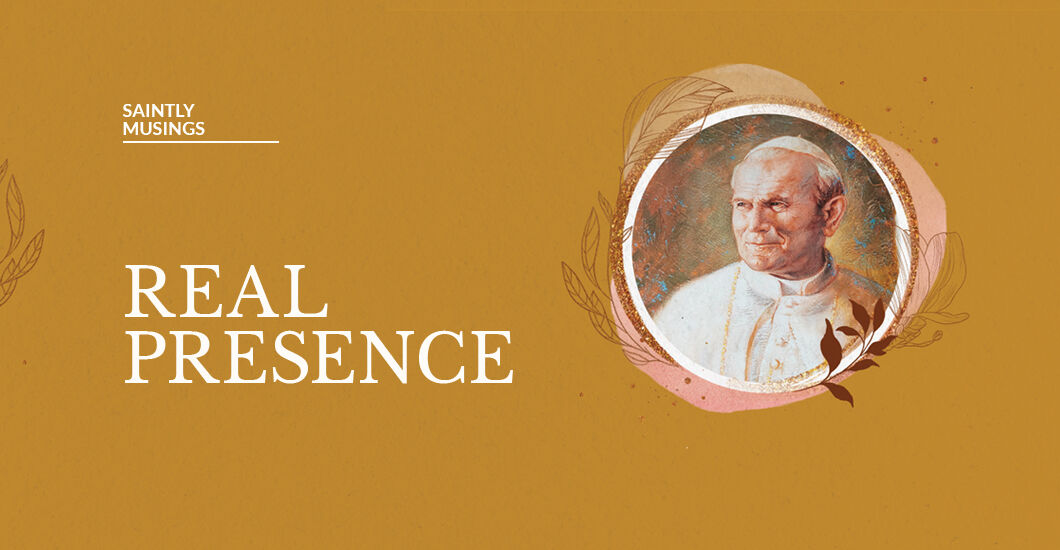
Is there such a thing as Eucharistic Sensitivity? Perhaps this anecdote regarding Pope John Paul II can answer the question.
During a trip to the State of Maryland, Pope John Paul II was scheduled to walk down a hallway in the archbishop’s residence. Along that hallway was the entrance to a chapel where the Blessed Sacrament was reserved. The papal organizer ensured that nothing indicated the door led to the chapel as he knew John Paul would certainly step inside to pay a visit to the Lord, thus significantly derailing the schedule.
On the day of the pilgrimage, Pope John Paul walked past the door and stopped. He wagged his finger at the papal organizer, opened the door of the chapel, entered and knelt to pray. One of the priests who witnessed the event commented in amazement, “He’s never been in this place before, never set eyes on the place, and there was nothing about the door that distinguished it in any way as a chapel. It was just one more door in a corridor of doors. But he turned right back around, he opened that door, and went into the chapel, and he prayed.”
Out of his intense relationship with the Eucharist, came the incredible gift of Eucharistic sensitivity. The late Holy Father teaches us a lesson regarding the desires of our heart. When our desire is great, our awareness of, and sensitivity to, that which we desire increases greatly. Let us pray that the good Lord helps us grow in our desire for him and inspires us to make time regularly to spend alone with Him in the Blessed Sacrament.
'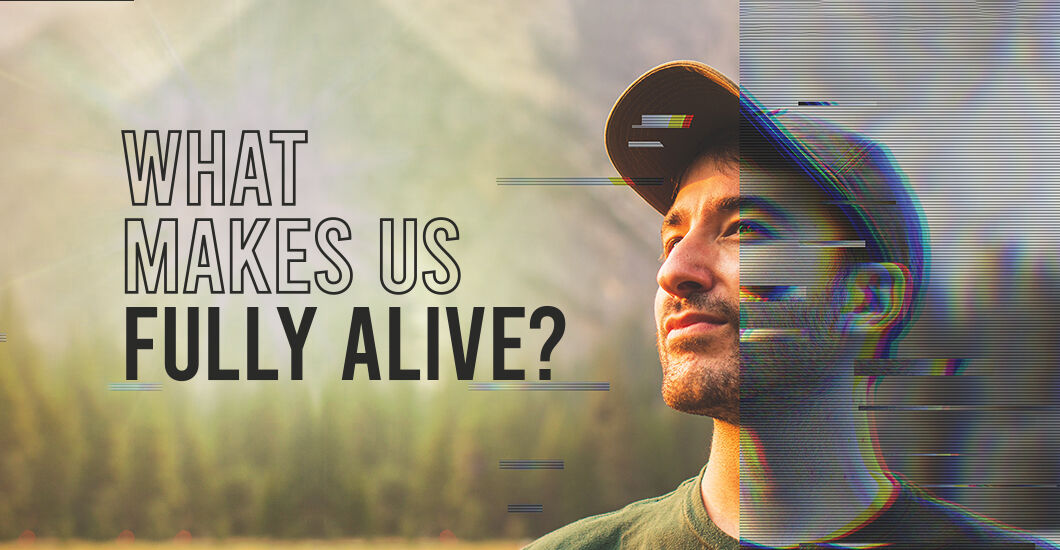
It’s time to wake up, show up and shine!
Saint Pope John Paul II exhorted all of us to open the door of our heart to Christ. He was inviting us to experience the fruitfulness of living our lives in the presence of God. But in today’s world, the idea of having God in your life feels like an imposition. The world takes the biblical image of God as a liberator, the one who sets us free, and distorts it into an image of someone who is against our freedom, our enjoyment and hope. But that is complete distortion.
To be fully human and to be fully alive means having God in our lives. When God is in our lives, we experience the fruits of His presence—the fruits of peace, love, joy, gentleness, and kindness—all these make us more human and alive.
The Way to Live
Jesus said “I have come that you may have life and have it to the full.” Very often in my journey with younger people, I see the pressure they experience in their lives. They work hard to get into college or university, or find a career. They have little time to live life. Life turns into a process of getting things and having things. Life is about being somewhere else. That is no way to live your life.
The way to live your life is to invite God into the midst of your life and allow Him to help you be your true self. God made us to be fully human and He delights in our humanity. God does not expect us to be spirits or angels. Jesus came into our world that is broken, full of sinners, people with sickness; a world that needs God, needs love, peace, and joy. And the fact is that we cannot have those things without God in our lives. It’s impossible for me to think of my life without God.
Unexpected Call
I was once contacted by a woman who asked if I would go and be with her husband who was in hospital. Let’s call him Peter. She was worried about how he would react to the news that his test results indicated he had only a few months to live.
I went to be with Peter. As we sat and prayed, the doctor entered. He shared the dire news and there was silence. I had prayed hard for God to be with us in this moment. Peter looked at me and asked, “Father isn’t God in this?”
“Of course He’s in this,” I said.
“Well…” he said, “If God is in this, I can face it.”When Jesus became man and entered the reality of our world, He experienced the joys and trials of being human. He went to many of the difficult places we all go to in life. So no matter where we go, Jesus is there just ahead of us. Peter understood this. He knew Jesus was there accompanying him. No matter what he was about to go through, even death, Jesus would be with him. Jesus would understand his trial because He had gone through the worst in the garden of Gethsemane.
The Great Transition
Peter told me that he would live his last months, his last weeks with Jesus, his wife, and his children. It seemed that when he came face to face with death, he came face to face with life. Convinced that Jesus was beside him, he said, “I can now live this life, I can live the sickness, I can live the prognosis, I can live with my family.”
His wife and I entered Peter’s room that day worried about how we were going to help him. But in the end, it was he who helped us by showing us how to live life, to cherish life, and to know that wherever Jesus is, there is fullness of life. There’s nothing in our lives that cannot be touched by Jesus. There’s no place we can go, even our temptations and our weaknesses, where Jesus will not walk beside us, because he has been there, too. When you sit quietly and wonder, “Does anybody hear my thoughts? Does anybody see my tears? Does anybody really understand me and what I’m trying to achieve in life?” rest assured: the answer is yes. There is someone who understands and cares for you.
Made to Enjoy
Your tears are not lost; your sadness is not forgotten. There’s a great phrase in the Book of Genesis. After creating Adam, God says, “It’s not good that man should be alone” (Genesis 1:18). God was talking about the need to find a companion for Adam. But I think He also was talking about something much deeper. He was talking about—our need for God’s presence in our own lives. God wants to be in your life, and it’s not good that man or woman or child be alone. We are made for communion. We are made for friendship. We are made to enjoy life together.
Saint Teresa of Avila had a vision of hell in which she saw men sitting alone in their own private prison cells, their backs to the doorway, their heads in their hands, thinking about themselves and profoundly sad. God did not create us to be alone and sad. He made us for communion with each other and fundamentally with Himself. We can be fully human only if we know we are loved. We don’t find God by going on a pilgrimage to the highest mountain or the lowest sea. We must find Him in our own souls, in our own hearts. And when we find Him there, we discover that He has come bearing fruit of joy and peace. Jesus comes to stand with us right in the midst of our lives. He comes into the brokenness, the need and poverty of our lives. All we have to do is say,
“Lord wherever I am and whatever is going on in my life, I want You to be with me. I ask that Your presence and the power of the Spirit in me make my life fruitful. I want to live life to the full. Because fullness of life is what You want for me. Amen.”
'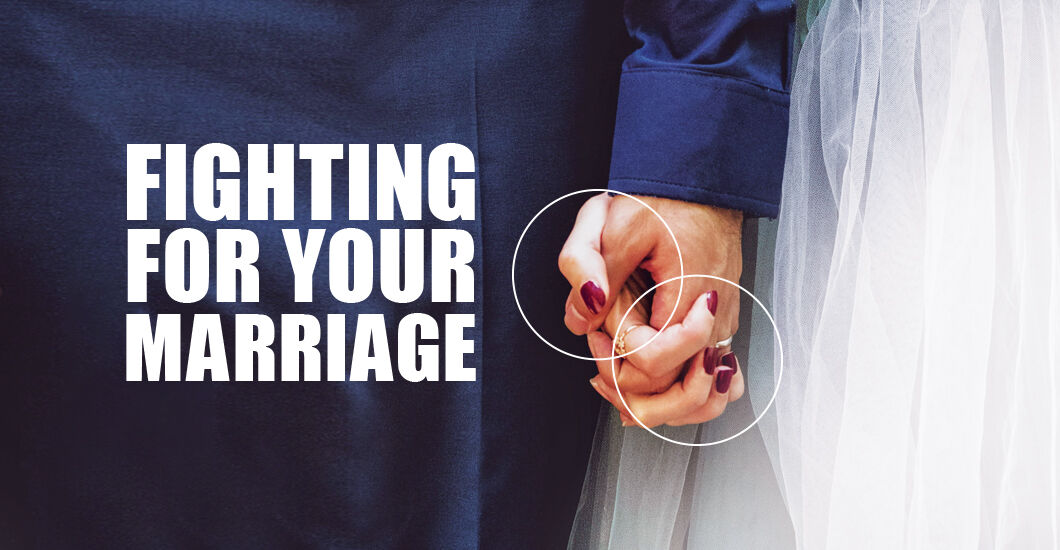
I was mad. A swirling storm of frustration and resentment threatened to infiltrate my heart. We had argued and my intense emotions clouded my heart, seeding bitterness against my beloved husband. What was happening to me? How could I feel this way about the man I love with all my heart? I was under attack by satan, the Prince of Lies and the Enemy of Marriage.
If there is one thing the devil hates, it’s the Sacrament of Marriage. Because a husband and wife mirror the powerful relational qualities of our Trinitarian God, we are under constant attack by satan. It’s true, marriage is hard and sometimes requires professional support, but many struggles are in everyday life. And it is here we find the devil most often on the prowl. He assaults us with sly temptations—suggestions of selfishness, pride, resentment—which like poison cause a toxic illness within us and in our marriage. The devil does everything he can to kill our marriage bonds because he knows that united, husband and wife are stronger, better able to recognize, attack and fight against him. And with Christ and His Church at our side we have the antidotes to fight against satan’s toxic brews.
Selfishness vs. Generoisty
Because of Original Sin, we are primed to focus on ourselves. Satan knows this and feeds us lies that we deserve special privilege and are entitled to grasp it for ourselves. He tempts us to seek only our own good. The poison of selfishness can lead to deep disconnection between spouses. Especially when disagreement or miscommunication happens, many of us are tempted to pull away from our spouses. Instead we are called to generously renew our marriage vows! So, if you find yourself retreating into selfishness, try giving an intentional sign of affection and love to your spouse. Your heart might rebel, but your actions are concrete: “I choose to love you.”
Pride vs. Humility
We all struggle with pride and satan knows it, tempting us to become victims of any slight or misunderstanding. He wants us to coddle our wounded pride, indulge moodiness, and even give our spouse the “silent treatment.” To battle this poison, consider taking practical steps to pursue the antidote of humility. Write a list of 3 qualities in your spouse for which you are grateful. Read this list out loud and tell your spouse you are thankful for them! Humility is also a willingness to take responsibility for our part in any misunderstanding. Speaking this aloud is uncomfortable at first but building a habit of humility together protects our marriages against the poison of pride.
Resentment vs. Forgiveness
Relationships are risky. When we love, we can get hurt. But what do we do when we are offended or hurt by our spouse? For many of us, forgiveness is hard, and it is here the devil lurks. He wants us to keep a record of each offense, holding grudges deep in our hearts until we become enslaved by resentment. Instead, we are called to make an intentional choice to forgive our spouse. Jesus wants us to stop holding grudges and release our spouse and ourselves to His mercy. Living practical forgiveness in marriage takes courage. Will you choose to give your spouse the benefit of the doubt? Will you forgive your spouse in the little things?
I strive every day in my marriage to reject Satan’s sly temptations. Many times I fail. But my husband and I seek to give each other grace—forgiveness in our failures, room to grow and encouragement on our journey together. But it takes teamwork—two people committed, united in battle against satan. I believe in my marriage, and I believe in yours! Fight for your spouse and invite the Lord to shine His light into your heart and marriage. His grace and antidotes will protect your marriage from the enemy’s poisons. “Be strong and steadfast; have no fear…. for it is the LORD, your God, who marches with you; He will never fail you or forsake you.” (Deuteronomy 31:6)
'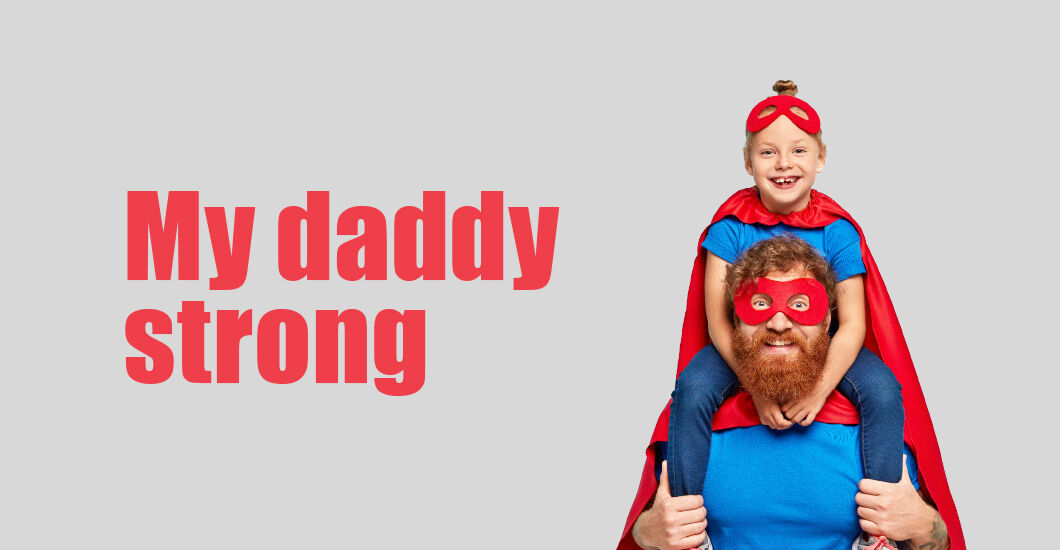
It was my Dad who led me to discover the greatest Father of all
My Dad went home to be with his Heavenly Father on June 15, 1994. Even though he is no longer with me physically, his spirit lives on in my memory. The lessons he taught me throughout my life have helped me to become the person I am striving to be today. He instilled within me a deep respect for all people, young and old alike. Like many things in my life, I had to learn the lesson of respecting people the hard way. I recall the day; I began to talk back to my mother and even stuck out my tongue at her. My Dad was within seeing and hearing distance, and needless to say, I got a spanking and a good talking to about respecting Mom. Now some might say, it was just a childish gesture to stick out your tongue, but to Dad it was very disrespectful and needed to be confronted. I learned my lesson well to respect Mom and other adults in authority.
My Dad was a hard-working, underground miner who worked in the copper mines in Butte, Montana. He believed in hard work and supporting his family to the best of his ability. Mining was dangerous work. He was injured several times in his working career. In 1964, he was injured in a severe mining accident, ending his mining career and his ability to work again.
This was an extremely difficult time for him and our family. He struggled to cope with the fact that he could no longer work and had to go on disability pay. For a man who was a dedicated provider, husband and father, this was devastating. Dad began to drink a lot, trying hard to drown his troubles in a bottle. However, over a period of months, something began to happen to Dad within his own heart. He quit drinking and began to read the Bible. My Dad, who had only a fifth-grade education, painstakingly began to read and absorb God’s Word into his heart. Day after day, hour-by-hour, he studied and meditated on God’s Word. God changed my Dad’s heart. He began to live each day, with the love of God in his heart.
He enjoyed life to the fullest despite enduring many heartbreaking times, including the loss of a daughter in a car accident when she was 18. My folks were blessed with four grandsons and one granddaughter. As a Grandpa, he had no favorites. Each grandchild felt as if he or she was the apple of Grandpa’s eye.
Even though the mining accident took away his ability to work, it turned out to be a wonderful blessing for all of us. He had time to spend with each grandchild and give them his full attention and love. Dad taught each of his grandsons how to drive his old Datsun pickup many years before they could legally drive. His mining accident left him with a very noticeable limp which his grandsons all tried to imitate by walking just like Grandpa. It was quite a sight to see Dad and his grandsons walking down the road together—all with obvious limps. They all looked up to Grandpa and wanted to be just like him. He had lots of patience, but best of all, he was took the time to be with each of them, enjoying every moment of the experience.
As a married woman with children of my own, many times I would go to my Dad for advice and encouragement. He would listen with his heart, trying not to judge, but would always encourage me to pray and trust in God to work things out. Through his example, I began to read the Bible too. I have so many precious memories of my Dad. But the most important thing he instilled in me was to place myself daily in the loving presence of my Heavenly Father so I could learn from the greatest Father of them all.
'
En route with the three Magi and be amazed!
The Epiphany is a feast of light. We hear from the prophet Isaiah, “Arise, shine; for your light has come, and the glory of the Lord has risen upon you” (Isaiah 60:1). We look to the actions of the Magi to guide our journey to the Lord Jesus, who is revealed as the light and salvation of the world. If we want to encounter Jesus too, we should pay attention to what the Magi did. What did they do? Three actions: they looked up to see the star; they realized what it meant and left their homes and activities to set out towards the light; and, they brought valuable gifts to worship Him.
Look Up
This is where the journey begins. Have you ever wondered why the Magi alone saw the star, and realized its significance? Perhaps few people were looking up to the heavens, because their gaze was focused on the ground with their own immediate concerns. I wonder how many of us look up to the sky? How many of us are like the Psalmist who says, “My soul looks for the Lord more than sentinels for daybreak…” (Psalms 130:6), or are we more like, “Hey, it’s enough that I have good health, a solid bank account and stock portfolio, access to a 5G network, and a little entertainment, especially on Sunday in which I can watch wall-to-wall football games!” Do we know how to long for God, to expect the freshness that he brings to life, or do we let ourselves be swept along by the frenetic pace of our lives? The Magi understood that to truly be alive, we need lofty goals—we need to dream big!—and we need to keep looking up.
Get Going
The second thing the Magi did, which is essential to finding Jesus, is to get up and begin the journey. When we stand before Jesus, we have a disconcerting either-or choice: is he Emmanuel, God among us, or is He not? If He is, then we have an obligation to give Him our total, uncompromised commitment so that our lives revolve around Him. Following His star is a decision to move towards Him and to advance steadfastly on the way He laid out for us. Although our journey is often two steps forward, one step backwards, the key is to keep our gaze on Jesus, pick ourselves up with His aid when we fall flat, and keep moving forward.
However, we cannot do that without getting off our couches, detaching ourselves from our comfort and security, and setting out instead of standing still. Jesus makes demands: He says that we are either for Him or against Him. In the spiritual path, there are only two directions: we’re either moving towards God or away from Him. If we want to move towards Jesus, we have to overcome our fear of taking risks, our self-satisfaction, and our laziness. Put simply, we have to take risks, to let go of our self-referential lifestyle if we are going to find the Child. But, those risks are worth it because when we find the Child, we’ll discover His tenderness and love and rediscover our true identity.
Bring Gifts
At the end of their long journey, the Magi do as God does: they bestow gifts. God’s ultimate gift is His divine life, which He invites us to share for eternity. They offer what is most valuable for them: gold, frankincense, and myrrh. These gifts represent what St. John Paul II calls The Law of the Gift: we abide in an authentic relationship with God when we live how God operates with self-giving love. The best gift you can give to Jesus is your very life! Give freely, without reservations—don’t hold back, keeping something for yourself. Give without expecting anything in return—including the reward of Heaven! This is the truest sign that you have found Jesus in your life. For he says: “The gift you have received, give freely as a gift” (Matthew 10:8): to do good towards others without counting the cost, even when unasked, even when you get nothing in return, even when it is unpleasant. That is what God wants of you because that’s how God relates to us! Look at how God comes to us: as a Child—He became small for our sake. As we celebrate the Epiphany, let us look at our hands: are they empty of self-giving or are we offering the free gift of ourselves without expecting anything in return. And, let us ask Jesus: “Lord, send forth your Spirit that I may be renewed; that I may rediscover the joy of giving.”
'